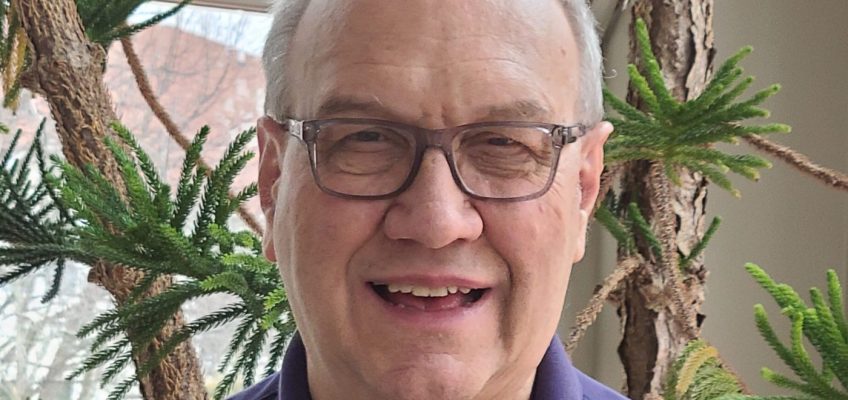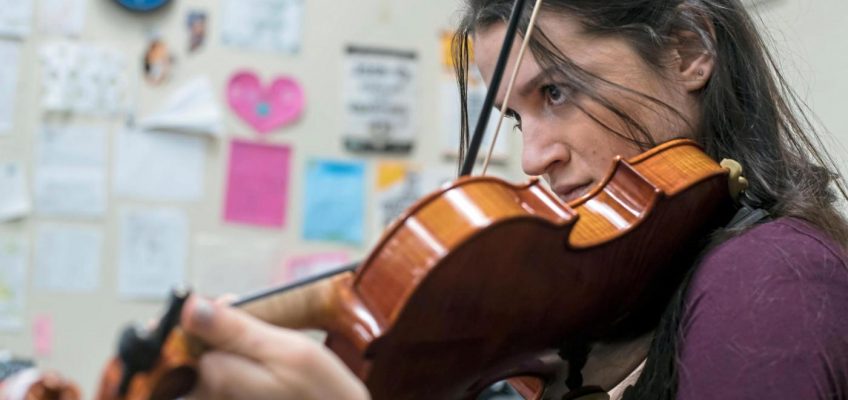Edward Lotterman
“It was the best of times, it was the worst of times.” Charles Dicken’s prescient assessment of the French Revolution fits the situation for our economy today.
Watching our economy go to hell is painful. But public desire to understand economic issues is at an all-time high. With President Donald Trump’s promised April 2 announcement of final tariffs looming over us, astute readers have asked about key issues. Here the most important ones:
Will tariffs close trade deficits?
No. The most important fact, often lost, in the whole situation is that if a nation consumes more goods and services than it produces, it must import more than it exports. That is not economic theory, it is grade school arithmetic. We can impose tariffs, but unless we increase savings by households, businesses or government, trade deficits will persist.
Could tariff revenue replace income tax revenue?
No, the relative magnitudes are just not right. U.S. imports of goods — physical things — total about $3.3 trillion a year. Personal income taxes come to $2.5 trillion. So a tariff of 75% on all imports could raise enough revenue to replace income taxes — as long as the quantity of imports did not decrease when tariffs were applied. Yet reducing imports is the very purpose of tariffs. So the revenue would not materialize. Moreover, tariffs of this magnitude would cause economic chaos.
Would China’s economy collapse if we stop buying from them?
This is a common belief, but the premise is off by a mile. Some 45 years after opening itself to trade, exporting manufactured goods to the world as a whole remains important to China. But as its overall economy has grown in recent decades, exports to the U.S. have shrunk in importance. China’s $427 billion in exports of physical goods to the U.S. in 2023 were only 2.4% of its $17.8 trillion in total output.
Is it true that Ireland has “taken advantage” of the U.S., as Trump says?
Trump specifically was addressing how many U.S. companies, especially medical device and pharmaceutical manufacturers, have nominally moved their headquarters to Ireland to evade U.S. taxes. Our own Medtronic was one of them. This does reduce U.S. tax revenues and employment marginally. It doesn’t reduce availability of products to U.S. consumers or returns to stockholders.
The background is broader. Trump believes that any country exporting more to the U.S. than importing from us is taking advantage of us. This is a common misconception, but is just plainly false.
Where can one get information about U.S. trade balances with specific countries?
Search the internet for “U.S. Trade in Goods by Country” and census.gov to find imports and exports by month and year for nearly 200 countries going back to 1985 in most cases. The site also explains trade terms and gives other info.
What tariffs does the U.S. itself actually impose on imports?
Search for “Harmonized Tariff Schedule.” This is a mind-numbingly complex document, but a half-hour scrolling through it teaches one a lot. Its 97 chapters on various categories include “Chapter 66: Umbrellas, sun umbrellas, walking sticks, seatsticks, whips, riding-crops and parts thereof.”
The “Notes” at the beginning of the whole document have much information about the tariff system and a list of the nearly 30 trade agreements we participate in.
What is an “ad valorum” tariff?
An ad valorum tariff is a percentage of the value of the import rather than a money amount per physical unit.
In ancient Greece or Rome, a tariff perhaps was two silver coins per amphora of olive oil. That was a “specific tariff” and these still exist. The U.S. still charges 1.5 cents per kilo of some green teas, for example.
But specific tariffs are problematic. Should the number of cents per pound be the same for coarse carpet wool as for fine wool for luxury apparel? On common rebar steel vs. chrome-vanadium alloy steel for drill bits? And what about inflation? A $12 per ton tariff in 1967 effectively would fallen to only $4 a ton adjusted for inflation in 1982.
It’s much simpler to just set tariffs as a percentage of value.
What is a “quota?”
A quota is a physical quantity limit instead of a tax. For example, from 1974 to 1994 there was an International Multi-Fibers Arrangement covering thread, cloth and finished clothing exported from poor countries to rich ones. The rich ones agreed to accept fixed quantities, or quotas. The U.S. might admit 10 million dozens of sweaters with no tariff or a reduced one. Most quota systems were phased out by the World Trade Organization.
However, a variation called “tariff-rate quotas” is at the center of Trump’s attacks on Canada. Such quotas set a low tariff on some initial quantity. But the rate steps up to a higher level on imports above some quantity threshold. It might be 8% of value on the first 500,000 units passing customs, but 25% of value after.
Trump also has been complaining about Canada charging 250% tariffs on U.S. dairy exports. This is sheer rubbish.
Both countries subsidize their dairy farmers, but in different ways. Our free trade agreements always have clauses to prevent imports from upsetting such programs. Canada limits milk production to raise prices for farmers. While Canada allows some imports of most U.S. dairy products at zero or low tariffs, rates jump sharply higher after a threshold. These are ones Trump cites. However, the thresholds are so high that they have never been reached in the decades with the agreements have been in place. It is a non-issue but that does not matter to Trump.
Do countries ever place tariffs on their own exports?
Yes, although rarely in modern days. Populist governments in Argentina, for example, have put tariffs on exports of agricultural products as a way to tax land owners.
However these are impossible for the United States. Our constitution’s Article I, Section 9, Clause 5 states: “No Tax or Duty shall be laid on Articles exported from any State.” This was demanded by southern states that feared northern, manufacturing-state majorities in Congress would tax southern-state exports of tobacco, rice and indigo.
How will U.S. automakers be affected, given U.S. and Canadian integration?
This huge issue would be obvious to anyone who ever was asked at an auto parts store whether the 351 cubic inch engine in their Ford was a 351C made in Cleveland or a 351W made in Windsor, Ontario. These were two completely different engines, and yet each was installed in sundry Ford vehicles at assembly plants in both countries.
Long before any blanket free trade agreement, the U.S. and Canada allowed the auto industry to operate tariff-free across the border with component plants and assembly plants on both sides. A famous study followed a raw copper cathode from a refinery in Texas to Canada where it was rolled into bars that went to Indiana to make cores for starter armatures that went to Ohio to be machined and wound with wire, in turn to the starter plant itself in Ontario, which sent finished units to Michigan to be bolted into Plymouth Slant Six engines that were put in cars and pickups on multiple assembly lines in both countries.
Obviously if you applied a 25% Trump tariff or a retaliatory Canadian one each time something like this crossed the border, the total paid would be many times the cost of the component itself. This is an example of a “cascading tariff.” These can be reduced with agreements to give credit for taxes paid in earlier steps, but still is the height of folly.
If nothing is done to mitigate this, after imposed, costs of autos manufactured under a system that worked very well over more than 60 years necessarily will rise more than from a simple 25% on the final vehicle. Manufacturers can scramble to set up separate production chains in each country, but this will kneecap efficiency. That is the kind of “deadweight loss” benefitting no one inherent in any trade restriction.
What tariffs does China apply to imports?
Chinese tariffs have fallen sharply over the last 35 years from an average 30% in 1990 to 2.1% in 2023. But such overall averages are misleading. As for many other nations, China does not impose tariffs on many raw materials needed by its industries. So most Chinese imports of coal, iron ore, soybeans, grains and crude oil are not taxed at all, but manufactured goods are hit with higher rates. And since Trump started a trade war in his first administration with tariffs that President Joe Biden largely left in place, U.S. exports to China now face tariffs that are higher than those imposed on the rest of the world.
This illustrates an important detail in trade data tabulations. Weighted average tariff rates may be calculated from dividing tariff revenues by the value of all imports. Or they may divide tariff revenues by the “value of all dutiable merchandise” that excludes raw materials or other goods admitted duty-free. Be sure to find which one applies to numbers cited.
What is “trade in services?”
Services are non-tangible things like insurance, transport, travel and tourism, engineering and construction, royalties for use of patents, copyright income from movies and television programs.
These are not new. Insurance was a major export for Holland and for Swiss cantons in the 1600s and for Baltimore and Philadelphia by 1800. Hollywood movies already brought money to the U.S. in the 1920s. Telenovela rights bring payments to Brazil from around the world.
The U.S. imports more physical goods from the rest of the world than it exports, but we export substantially more services than we import. In 2023, we exported $2.018 trillion in physical goods and imported $3.080 trillion. For services, we exported $1.026 trillion and imported $748 billion.
In general, it is harder to tabulate the value of trade in services since they don’t pass through customs anywhere and must be gleaned from corporate financial statements. Most payments for ocean shipping are made to shell companies in Liberia and Panama, but the ship owners are elsewhere.
(For details, search for census.gov and “U.S. International Trade in Goods and Services (FT900)” . Downloadable files are in “Exhibit 3- U.S. Exports of Services” and “Exhibit 4- U.S. Imports of Services” )
What does “effective rate of protection” mean?
This deals with how much a given tariff allows for higher labor costs and is a critical issue in current policy debates. It is key to how much Trump’s tariffs will allow U.S. firms to charge higher prices.
Consider a simple fabricated metal product like modular scaffolding. These require steel, semi-skilled labor and basic welding and metalworking machines. They are made in two countries with differing labor costs, say Brazil and the U.S. Assume the costs of steel and machinery are at the same world prices for both. These total $70 per scaffold frame for both producers. However production-line wages and front-office salaries differ.
Assume that factories in Brazil can produce a scaffold frame for $100. In the U.S., the breakeven costs are $110. We then impose a 25% tariff that boosts prices of imported Brazilian ones to $125. Our companies can now charge $15 more and still meet import competition. However, that $15 boost on a base of $40 in wages and salaries is a 37.5% increase on the costs that actually differ between the countries. So a nominal 25% tariff on a product give an “effective rate of protection” for U.S. wages that is higher than the announced tariff rate. This situation applies to nearly all U.S. imports of manufactured goods from lower-wage countries.
This is a good start. Get your popcorn ready to watch the next act of this play — whether tragedy or farce — on April 2.
Related Articles
Real World Economics: Stagflation bullets are already in the air
Real World Economics: U.S. heath care model provides a teaching moment
Real World Economics: Playing chicken with egg prices
Real World Economics: Shaky politics make for a shaky economy
Real World Economics: Contemplating the interconnectivity of things and ideas
St. Paul economist and writer Edward Lotterman can be reached at stpaul@edlotterman.com.




